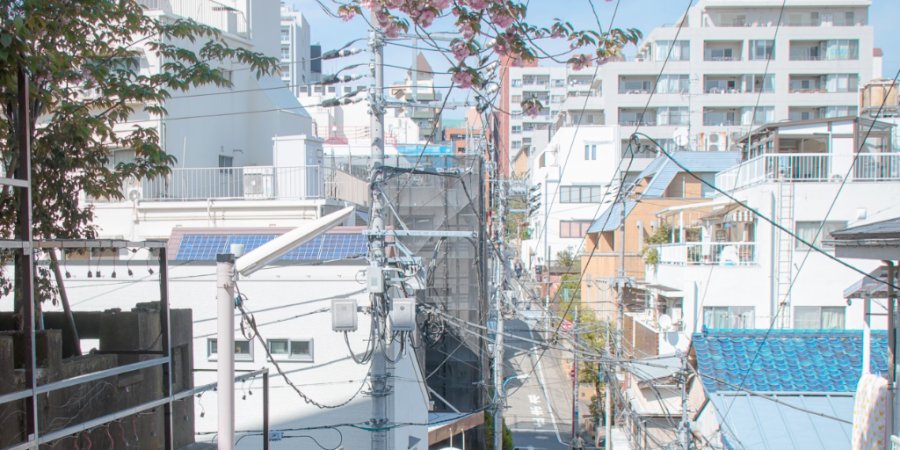Freelancing in Japan: Opportunities, Challenges, and FAQs

The land of the rising sun, Japan, is not only famous for its rich culture and technological advancements but also for its unique working environment. In recent years, the concept of freelancing has started to gain traction in Japan, a country traditionally known for its rigid work culture and lifelong employment system.
The Rise of Freelancing in Japan
A Shift in Work Culture
Japan's work culture has long been characterized by long working hours, loyalty to a single company, and a hierarchical structure. However, with the global trend towards more flexible working arrangements, Japan is also witnessing a shift. The younger generation, in particular, is more open to freelancing and remote work, seeking a work-life balance that was often missing in traditional Japanese companies.
Government Initiatives
Recognizing the potential benefits of freelancing, the Japanese government has also taken steps to support and regulate this emerging sector and encourage innovation in Japan. New laws and regulations are being formulated to protect the rights of freelancers and ensure fair treatment.
Opportunities for Freelancers in Japan
Diverse Fields
Freelancers in Japan have the opportunity to explore various fields and industries. From technology and design to writing and marketing, the demand for specialized skills is growing. This diversity allows freelancers to find their niche and excel in areas they are passionate about.
Work-Life Balance
One of the most appealing aspects of freelancing is the ability to control your working hours and environment. In Japan, where traditional work culture often demands long hours, freelancing offers a refreshing alternative. It allows individuals to create a schedule that suits their lifestyle, whether they prefer to work from home, a co-working space, or even while traveling.
Global Connections
In an increasingly connected world, freelancers in Japan are not limited to local clients. They can collaborate with businesses and expats living in Japan across the globe. This international exposure not only broadens the scope of potential projects but also enhances cultural understanding and global networking.
Supportive Communities
With the rise of freelancing, supportive communities and networks have emerged in Japan. These communities offer resources, mentorship, and opportunities to connect with fellow freelancers. They can be invaluable in navigating the freelancing landscape and finding like-minded professionals.
Challenges for Freelancers in Japan
Cultural Barriers
While freelancing is gaining acceptance, there may still be cultural barriers to overcome. Some traditional Japanese companies may prefer full-time employees over freelancers, viewing them as more committed and reliable. This perception can make it challenging for freelancers to secure projects with certain clients.
Legal and Tax Considerations
Freelancing in Japan comes with its own set of legal and tax obligations. From registering as a sole proprietor to understanding tax deductions, the legal landscape can be complex. It's essential to consult with professionals who specialize in Japanese law to ensure compliance and avoid potential pitfalls.
Competition
As more individuals turn to freelancing, the competition in various fields is intensifying. Building a reputation and standing out from the crowd requires dedication, quality work, and effective marketing. Networking and continuous skill development are vital in staying competitive.
Health and Benefits
Unlike full-time employees, freelancers in Japan must manage their health insurance and other benefits. Understanding and selecting the right coverage can be a daunting task, especially for those new to freelancing. Additionally, the lack of a stable income may lead to financial instability, requiring careful planning and budgeting.
Work Isolation
Freelancing often involves working alone, which can lead to feelings of isolation and loneliness. Finding a supportive community, co-working space, or regular networking events can help alleviate this challenge and foster a sense of connection.
How to Start Freelancing in Japan

Understanding the Market
Before diving into freelancing in Japan, it's essential to understand the market, the demand for your skills, and the competition. Researching and networking with other freelancers can provide valuable insights.
Building a Portfolio
A strong portfolio showcasing your work and expertise is vital in attracting clients. Whether you're a writer, designer, or developer, having a well-curated portfolio can make a significant difference in your freelancing journey.
Legal and Tax Considerations
Understanding the legal and tax obligations is crucial when freelancing in Japan. Consulting with a legal or tax professional can help you navigate the complex regulations and ensure compliance.
Frequently Asked Questions (FAQ)
Can you be a freelancer in Japan?
Yes, freelancing is legal and increasingly popular in Japan. Individuals can work as freelancers in various fields such as technology, design, writing, and more. However, it's essential to understand the legal and tax obligations and comply with Japanese regulations.
Do freelancers pay tax in Japan?
Yes, freelancers in Japan are required to pay income tax on their earnings. The tax rate depends on the income level, and there may be deductions and exemptions available. It's advisable to consult with a tax professional in Japan to understand the specific tax obligations for your situation.
How much is income tax in Japan for freelancers?
Income tax for freelancers in Japan is calculated based on a progressive tax rate, ranging from 5% to 45% depending on the income level. Additional local taxes may also apply. Understanding the exact tax liability can be complex, so seeking professional tax advice is recommended.
Can I work self-employed in Japan?
Yes, you can work as a self-employed individual in Japan, including as a freelancer. It requires understanding and complying with various legal and tax regulations, such as registering as a sole proprietor and paying the appropriate taxes. Support and resources are available to assist self-employed individuals in navigating these requirements.
How do I start freelancing in Japan?
Starting freelancing in Japan involves several steps, including identifying your niche, building a portfolio, understanding legal and tax obligations, and networking with potential clients. Joining freelancer communities and seeking professional legal and tax advice can be valuable in successfully launching your freelancing career.
Is health insurance mandatory for freelancers in Japan?
Yes, health insurance is mandatory in Japan, including for freelancers. Freelancers must enroll in the National Health Insurance (NHI) system or other appropriate insurance plans. Understanding and selecting the right coverage is essential to ensure compliance and receive necessary healthcare benefits.
What are the best platforms for finding freelance work in Japan?
Several platforms cater to freelancers in Japan, including both local and international websites. Some popular platforms include Lancers, CrowdWorks, and Upwork. Researching and selecting platforms that align with your skills and goals can help you find suitable projects and clients.
Conclusion
Japan is a great country with unique history, art and culture. Freelancing in Japan is an exciting and growing field, offering opportunities for flexibility, creativity, and global connections. While there are challenges to overcome, the potential rewards make it an attractive option for many professionals in Japan.
More to Read:
Previous Posts:






